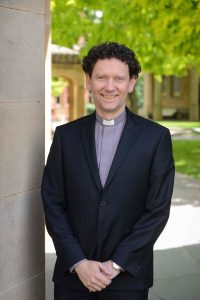
I love science fiction films! One of my favourites of all time is “The Matrix”. When the first film of the trilogy came out in 1999 it was considered ground-breaking for its special effects, but what is far more interesting about the film is the plot development, as the main character, Neo, searches for truth in his life. Neo is played by a very young Keanu Reaves. The things that have really dated about this film are the phones and the computer monitors, but it’s actually stood the rest of time pretty well otherwise. Neo is a young computer programmer searching for ultimate meaning and purpose. He has a nagging sense, a feeling, that he is not being told the truth about the nature of reality, about the nature of life itself. He suspects that the authorities in charge of the city he lives in (Sydney in real life) are not being honest.
If you haven’t seen it, I’m not going to spoil the film for you, but there are a couple of themes which are so powerful, and which link so directly with Christianity, that they are worth exploring.
In his hunt for truth, Neo is interested in meeting a mysterious character called Morpheus. The information about Morpheus is sketchy, to say the least. He is considered a terrorist by many authorities around the world, but Neo finds him fascinating. Out of the blue, Morpheus makes contact with Neo through one of his key followers and supporters, Trinity, played by Carrie-Anne Moss.
Eventually, after a few dramatic events in the film, Trinity takes Neo to meet Morpheus, but on the way Trinity has an argument with one of her subordinates and almost gets out of the car and leaves.
There are many crucial moments in the film, when Neo is faced with different choices, and depending on what choice he makes will then determine, quite profoundly, what path he will take. His choices will determine whether he will discover the truth about life and realise his full potential. These choices will determine, ultimately, whether he will find his true meaning and purpose in life.
Neo almost gets out of the car and abandons Trinity, which would mean giving up on the chance to meet Morpheus and learn the truth about life. He is about to leave the car and walk down a dark street somewhere in the city, in the pouring rain. Trinity’s words to Neo make all the difference, “You’ve been down there, Neo. You already know that road. You know exactly where it ends. And I know that’s not where you want to be.”
Of course, what Trinity means is that if Neo gets out of the car and abandons the chance to meet Morpheus, he will go back to his cramped apartment and back to a job that he really doesn’t like. In other words, he will go back to a life which, for him, doesn’t seem to have a great deal of meaning and purpose.
More on “The Matrix” plot-line in a moment. The original Matrix film was quite deliberately based on Christian themes. You wouldn’t call it a Christian film in the sense that Mel Gibson’s “The Passion of the Christ is a Christian film” for example – “The Matrix” is not quite that specifically Christian. Nonetheless, the themes are very Christian. One of the key ideas is that we are called to search for meaning and purpose in our lives. For the Christian, of course, this meaning and purpose comes from a relationship with God and seeking to do God’s will in the way we look after other people. It’s summed up in the two Great Commandments: love God and love your neighbour as yourself.
Neo doesn’t go down that familiar road, instead he chooses to meet Morpheus, played by Lawrence Fishburne. I won’t spoil the film by telling you what Morpheus tells him, but what Morpheus offers him is the truth about life. Morpheus has one of the best lines in the movie: “Remember, all I’m offering is the truth – nothing more.” The truth is that Neo has the chance to break out of his frustrating life and see the world as it really is. He has a chance to do something meaningful.
In our world, this world, the message we have been sold, very successfully, is that if you work hard enough, if you have the right connections, if you choose the right profession, then you will make plenty of money, be able to buy whatever you like, and you will be “happy”. The thing about good lies is that they always contain some truth. The partial truth of that message is that we will experience some contentment, if we are comfortable and have enough money. That’s true. If you are not having to worry each day about where your next meal is going to come from, like so many people in our world have to do, then you will experience some contentment in that. (“Contentment” is a more accurate word than “happiness” in this context). You will experience some contentment from having enough money and certainly from having access to good health care and education.
However, the truth is that true wellbeing, true happiness, cannot come from money. It happens in other ways, through other means. I think it happens when we find something we really enjoy doing, which makes a contribution to society – which serves other people or serves the planet in some way. I can’t tell you what that will be for you. I can’t tell you what choices to make. All I can offer you is the truth, nothing more.
The Reverend Dr Theo McCall
School Chaplain
